Increasing And Reducing Friction
key notes :
Definition of Friction
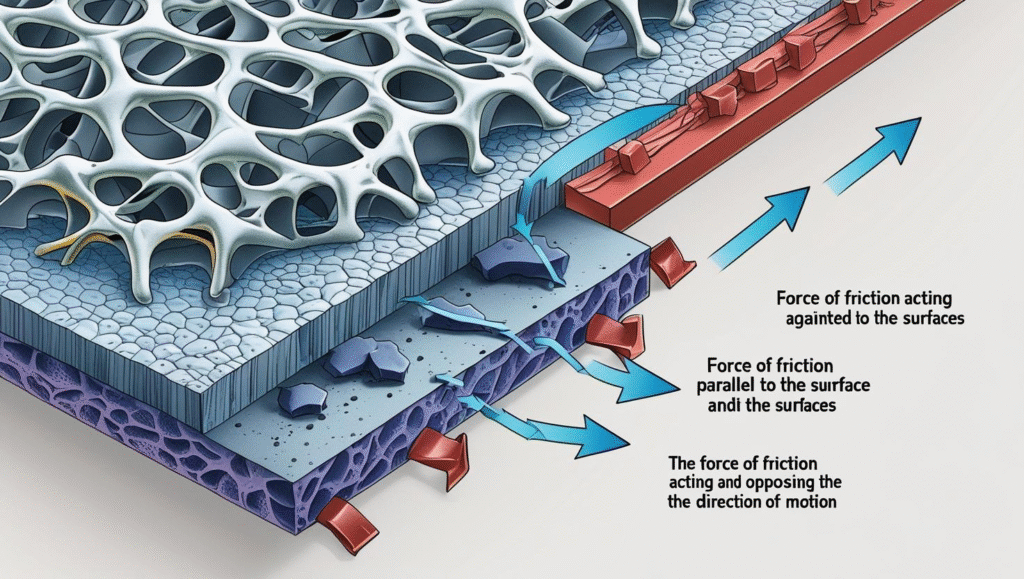
- Friction is a force that opposes the relative motion of two surfaces in contact.
- It acts parallel to the surface and opposite to the direction of movement.
Types of Friction
- Static Friction: Prevents surfaces from sliding past each other.
- Sliding Friction: Occurs when two surfaces slide over each other.
- Rolling Friction: Happens when an object rolls over a surface.
- Fluid Friction: Resistance from liquids or gases when an object moves through them.
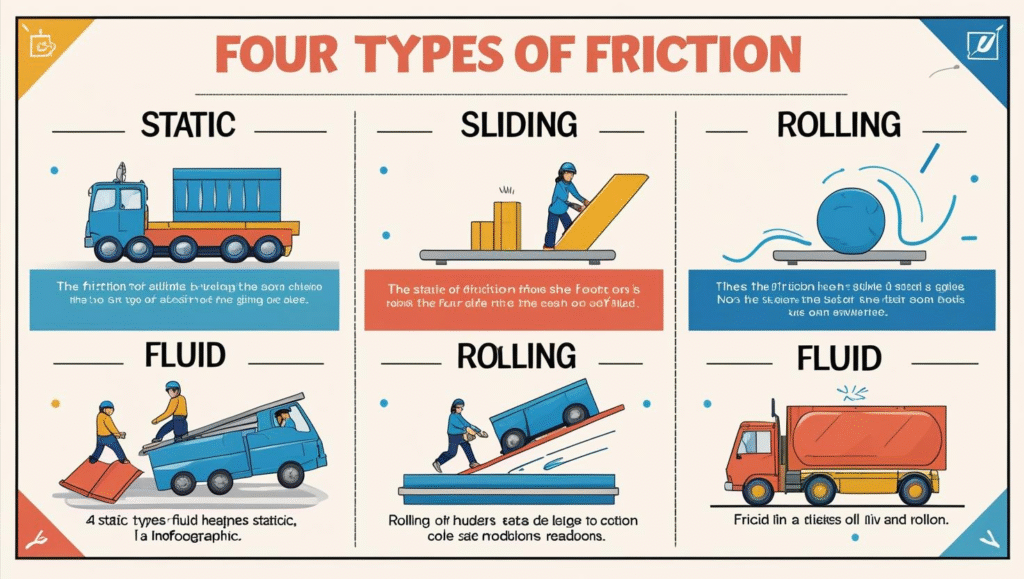
Factors Affecting Friction
- Surface Roughness: Rougher surfaces have higher friction due to more interlocking between surfaces.
- Normal Force: The heavier the object, the more friction it generates.
- Nature of the Materials: Different materials produce different levels of friction (e.g., rubber on concrete vs. ice on metal).
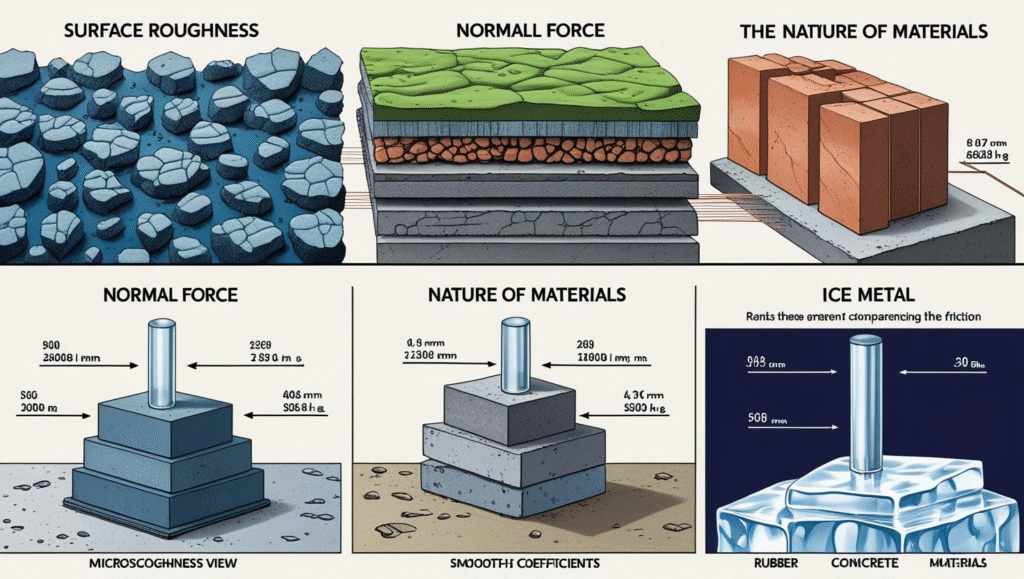
Increasing Friction
- Making Surfaces Rougher: Adding rough materials like sand or rubber increases friction.
- Increasing Normal Force: Adding weight or pressure increases the force of friction.
- Using Adhesive Materials: Sticky substances or treads on shoes and tires increase friction.
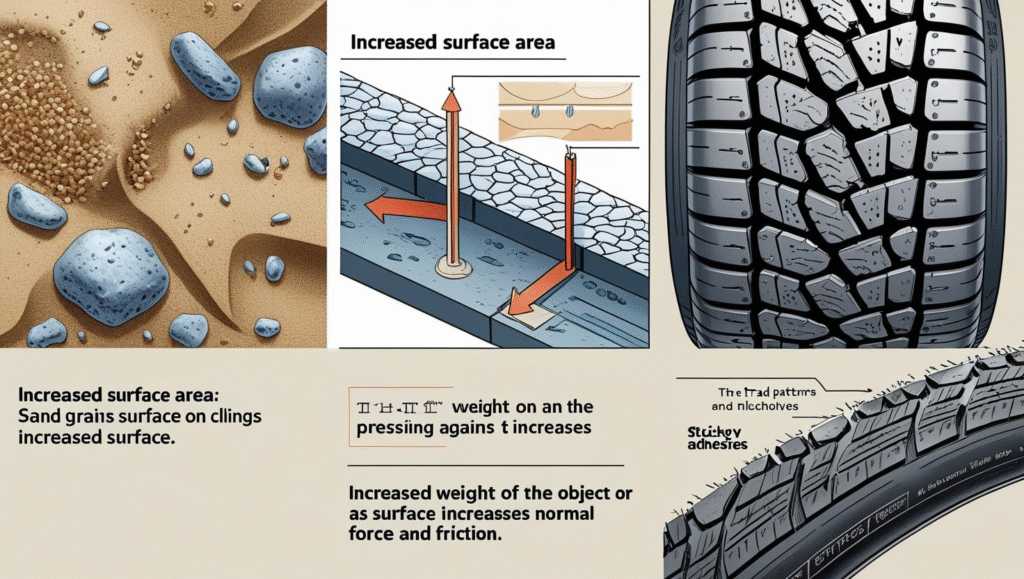
Applications of Increased Friction
- Brakes in Vehicles: Friction is increased using brake pads to slow down or stop the vehicle.
- Athletic Shoes: Designed with textured soles to increase grip and prevent slipping.
- Sandpaper: Used to make surfaces rough for better adhesion in painting or gluing.
Reducing Friction
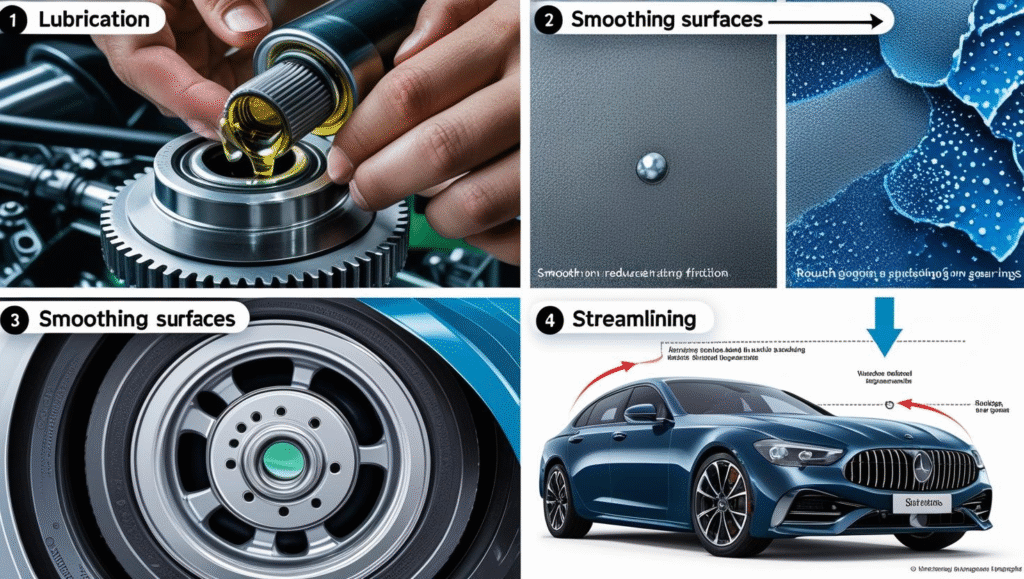
- Lubrication: Applying oils, greases, or other lubricants reduces friction between surfaces.
- Smoothing Surfaces: Polishing or using smoother materials reduces friction.
- Using Ball Bearings: Rolling friction is lower than sliding friction, so ball bearings help in reducing friction in machinery.
- Streamlining: Objects like cars and airplanes are designed to reduce fluid friction by having smooth, aerodynamic shapes.
Applications of Reduced Friction
- Machinery and Engines: Lubricants reduce friction, preventing wear and tear.
- Ice Skating: Ice provides low friction, allowing smooth gliding.
- Airplanes and Cars: Streamlined shapes reduce air resistance, improving speed and efficiency.
Balancing Friction
- Essential in Everyday Life: Friction needs to be managed carefully; too much friction causes wear and too little causes slipping.
- Example in Transport: Proper tire tread design provides enough friction for safety without excessive wear.
Let’s practice!

